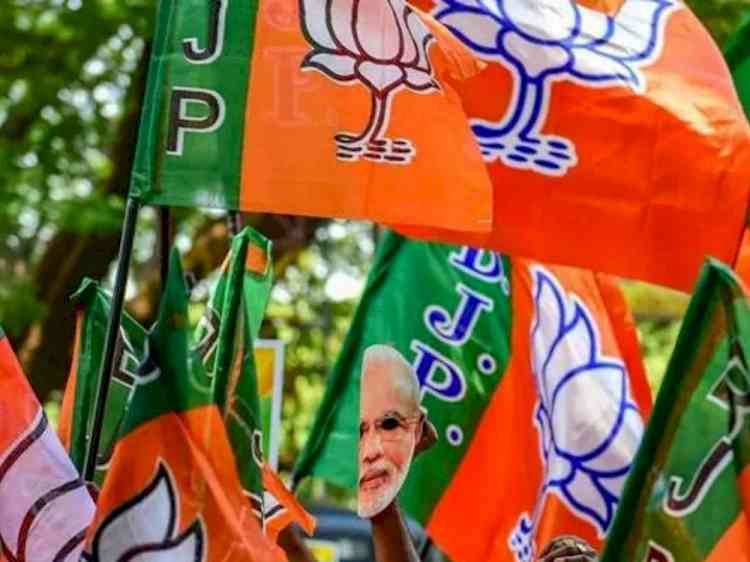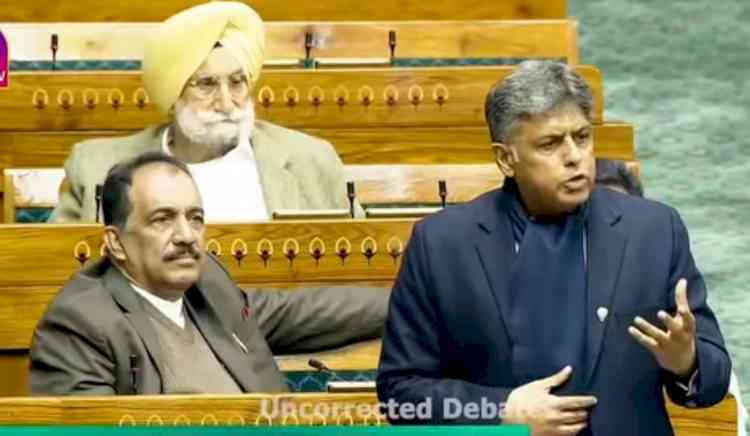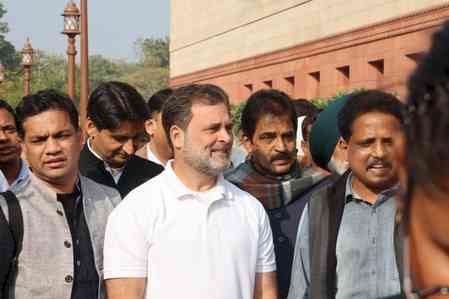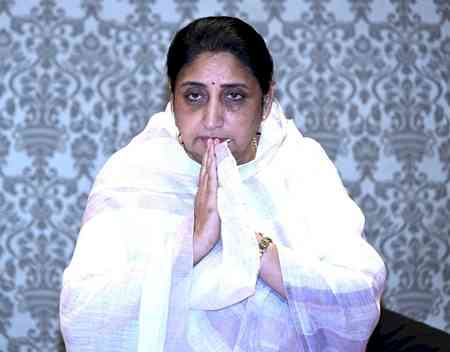BJP seeks clarification from ex-Vice Prez on Pak scribe's claims
The BJP on Wednesday slammed former Vice President Hamid Ansari and the Congress, and sought their clarification over claims by a Pakistani journalist that he had visited India five times during the UPA rule, and shared sensitive information collected during his visits with the Inter-Services Intelligence (ISI) back home.

New Delhi, July 13 (IANS) The BJP on Wednesday slammed former Vice President Hamid Ansari and the Congress, and sought their clarification over claims by a Pakistani journalist that he had visited India five times during the UPA rule, and shared sensitive information collected during his visits with the Inter-Services Intelligence (ISI) back home.
BJP spokesperson Gaurav Bhatia said this while referring to Pakistani journalist Nusrat Mirza's claims that he had visited India on Ansari's invitation and also met him.
Addressing a press conference, Bhatia said, "If Congress leaders Sonia Gandhi and Rahul Gandhi, and the then Vice President remain silent on the questions raised by the ruling party, it will amount to their admission to these sins."
"People of India are giving you (Ansari) so much respect and you are betraying the country. Isn't this treason? Sonia Gandhi, Rahul Gandhi and Hamid Ansari should come out and reply to this," Bhatia said.
He said that journalist Mirza has claimed in an interview in Pakistan that Ansari had invited him five times to India during 2005-11 and shared extremely sensitive and classified information, which he passed on to the ISI.
"Mirza collected the information from Ansari and it was used against India," Bhatia claimed.
He alleged that Mirza was also invited to speak at a seminar on terrorism. He asked if it is the Congress' policy to end terrorism by inviting a person, who is sharing information with the ISI, to speak on how to fight terrorism.
Bhatia also pointed out Mirza's claim that he was given visa to visit seven Indian cities against the established practice of visiting three cities.



 IANS
IANS 










